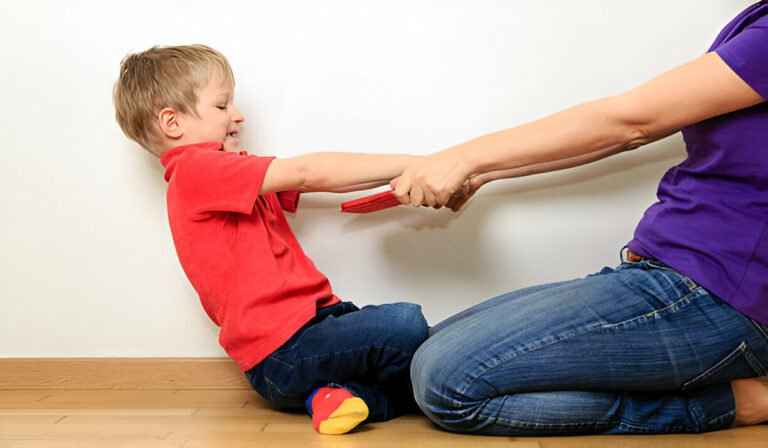What Kind of Things Upset Your Child? A Practical Guide for Parents

Parenting often feels like navigating a maze of emotions, especially when your child is suddenly sad, frustrated, or angry and you’re left wondering, “What just happened?” The truth is, children experience the world with a depth of feeling that can be both beautiful and bewildering.
Understanding what triggers these strong emotions isn’t just helpful; it’s essential for building a trusting, connected relationship that supports your child’s wellbeing and confidence.
This guide unpacks the most common reasons children get upset, explores why attention and understanding matter so much, and offers actionable tips for parents eager to support their kids’ emotional growth.
By the end, you’ll not only recognize the triggers of your child’s distress—but you’ll also feel empowered with clear ways to respond with empathy and wisdom.
Common Triggers for Upset Children
Even small events can feel monumental to a child. The adult world may dismiss these as trivial, but for kids, these moments matter deeply. Here’s what research and parenting experts highlight as the most frequent culprits:
1- Failing to Acknowledge Achievements
Children crave recognition for their hard work, no matter how small. When their efforts are overlooked, they may feel invisible or unmotivated.
According to IndiaParenting, encouragement and recognition not only fuel children to try again but foster a healthy sense of self-worth.
2- Using Negative Words
Language shapes a child’s self-view. Consistently hearing “no,” “don’t,” or “never” can make kids feel demoralized or unloved, especially when these words come from someone they’re trying to please.
3- When Threatened
Threats, even those intended to change behavior, feel like emotional attacks to a child. This leads not to better compliance, but to defensiveness, fear, or a shutdown in communication.
4- Trying to Impose Ideas
Every child has their own perspective and budding creativity. Forcing them to adopt your ideas or making all decisions on their behalf chips away at their confidence and autonomy.
5- When Controlled
While guidance is important, tight control over every choice leaves kids feeling powerless. Rather than fostering security, over-control often sparks rebellion or anxiety.
6- When Ignored
Children need to know they matter. Ignoring them, especially during tantrums or emotional moments, can intensify feelings of rejection and insecurity.

7- When Punished
Punishments may stop unwanted behaviors in the short term, but they can also foster shame and resentment. Children need understanding and guidance, not humiliation.
8- When Criticized
Harsh criticism signals that your child isn’t “good enough.” Even constructive criticism needs to be presented gently, focusing on behavior rather than their worth as a person.
9- When Compared with Others
No one likes being measured against their peers. Comparisons diminish your child’s unique strengths and can trigger feelings of jealousy, inferiority, or hostility.
10- Family Problems
Kids are deeply affected by tension at home—including family conflict, divorce, financial hardship, or illness. Even when parents try to shield children from these issues, kids often sense when things are off and may blame themselves.
The Importance of Attention and Understanding
More than anything else, children long to feel seen and heard by the adults in their lives. When their emotional needs are met, they are more likely to thrive emotionally and academically.
Children Want to Be Noticed
From the first crayon drawing on the fridge to a dramatic story about a playground adventure, children constantly seek validation. Lack of attention can lead to acting out or withdrawal in an effort to reclaim a parent’s focus.
Placing Priorities Before Them
Children may not verbalize it, but they notice when work, chores, or even your phone gets more attention than they do. This can make them feel unimportant, fueling feelings of resentment or neediness.
Ambiguous Expectations
Kids are confused and upset when rules seem inconsistent or unpredictable. Clear, fair boundaries help them feel safe; vague or constantly changing rules do the opposite.
Understanding vs. Agreement
You don’t have to agree with all your child’s wishes, but explaining your reasoning and showing you understand their feelings builds trust. Even if they disagree, this process strengthens your relationship.
Home Environment
Children flourish in environments of emotional safety. Consistency, honesty, and respectful communication lay the groundwork for resilience and secure attachment.

Balancing Supervision and Respect
Finding the sweet spot between guiding your child and giving them space is one of parenting’s biggest challenges.
Oversupervision and Underrespect
Micro-managing every detail of your child’s life can cause frustration and stifle their growth. Children need to test boundaries and learn from mistakes. Overprotectiveness may seem like love, but can lead to anxiety and a longing for autonomy.
Allowing Independence
From choosing what to wear to solving social dilemmas, letting kids have a say in their daily lives shows respect and builds self-reliance. Foster independence gradually, offering guidance when needed but resisting the urge to jump in at every step.
What Children Want But May Not Tell You
Sometimes, upset kids can’t or won’t articulate what’s really bothering them. Psychologists and family therapists (as highlighted by BounceBack Parenting) highlight unspoken wishes that, if addressed, can ease tension and strengthen connection:
- Communication Preferences: Sometimes, kids just want you to listen without jumping in with solutions.
- The Need for Trust and Help: They value being trusted to work things out on their own but want to know help is available if needed.
- Parental Blame: Many children feel guilty if you appear upset, even if it’s not because of them. They need reassurance that it’s okay to have emotions.
- Honesty: Kids are perceptive; honest communication (within age-appropriate boundaries) reassures them and builds trust.
- Perseverance: Even if they push you away, kids want you to keep reaching out and offering support.
- Seeing the Good in Them: Above all, they want to know you believe in their goodness and potential, especially during difficult moments.
Practical Tips for Parents
Understanding is only half the battle; it’s what you do next that truly supports your child’s wellbeing. Here are practical steps:
Active Listening and Empathy
- Focus on really hearing your child, rather than planning your response.
- Show empathy with phrases like “It sounds like you’re feeling…” or “I can see why that would upset you.”
Positive Reinforcement
- Praise efforts, not just outcomes.
- Acknowledge progress and resilience, helping kids build a positive self-image.
Clear and Consistent Expectations
- Set boundaries and enforce them with calm consistency.
- Explain rules and consequences plainly, and avoid using threats or comparisons.
Creating a Safe Environment
- Be a source of comfort and reassurance.
- Admit your mistakes and be open about your own feelings if it helps model emotional intelligence.
Encouraging Independence
- Offer choices when appropriate.
- Support your child as they take on new responsibilities or solve problems, even if mistakes happen.
Supporting Your Child’s Emotional Growth
Parenting is a lifelong learning process. Upset or emotional children aren’t trying to make your life difficult; they’re learning how to process and communicate their feelings, often for the first time. The more we understand what triggers their distress and respond with patience and empathy, the more we help them build inner resources for a confident, happy life.
Next time your child is upset, take a pause. Try to see the world from their point of view and ask yourself what unspoken need is behind the tears or anger. Compassionate curiosity—not criticism—is your greatest tool for guiding your child through big feelings.






